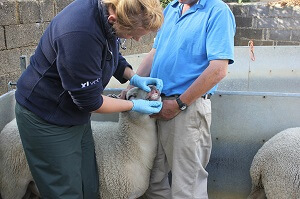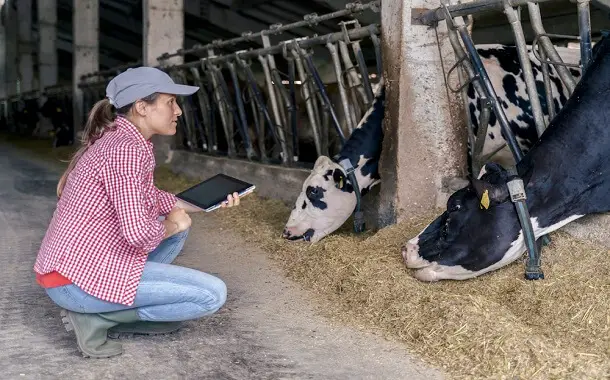How Much Does a Vet Farm Call Cost?
Last Updated on December 9, 2023
Written by CPA Alec Pow | Content Reviewed by ![]() CFA Alexander Popinker
CFA Alexander Popinker
From emergency colic surgeries on horses to routine vaccine boosters for backyard egg layers, farm vets perform invaluable services ensuring animal health and welfare. But service calls also carry costs for time, farm travel, medical supplies, and more. This article breaks down typical rural veterinary visit and procedure fees so clients better understand common charges that come with caring for farm animals.
How Much Does a Vet Farm Call Cost?
The base farm call rate is $75 and represents travel fees for most routine visits within 30 miles. Additional surcharges may come into play for distant properties requiring excessive transit times or locations difficult to access.
For emergency calls, an extra $50-$200 urgent response fee often applies on top of the regular farm call rate. However, long-time clients using the same vet regularly typically receive discounted emergency prices. Established individual relationships and history matter when relying on a trusted animal care provider.
Hourly Examination Charges
Beyond logging road miles to your farm, vets also charge hourly service fees for time actively checking animals and performing procedures like vaccines, wound care, pregnancy checks, and much more.
The going rate is approximately $150-$200 per hour. For basic visits, hourly rates apply with a 30 minute minimum, ensuring that the professional will get compensated for time invested even when appointments finish quicker than a full hour.
So a routine appointment involving the farm call cost plus a half hour examination still costs around $155-175 total for baseline services. Any supplies, medications, or samples collected come with additional charges.
This hourly model ensures pet owners pay fair prices matched to the actual time vets waste carrying out duties – regardless of whether that involves comprehensive annual physicals or fast follow-up checks on recovering patients.
Bobbin Mill Vet, for example, provides specific pricing for farm visits, including a $75 farm call fee for most areas, with an additional emergency fee for urgent visits. The basic 30-minute visit, according to them, is priced at $155, which includes the farm call fee and an hourly rate of $160 for 0.5 hours. The website also outlines pricing for specific services such as equine vaccinations, floating, and Coggins testing.
MarketWatch also discusses the average cost of a routine veterinary checkup, which is reported to be $50 to $250. They also state that the actual cost depends on the type of pet, location, and the specific services required.
Clover Acres Livestock Veterinary Services provides example fees for service packages for ruminants and camelids, including an initial farm visit with a brief consultation priced at $60. The website also outlines pricing for specific services such as body condition scoring, protocol development, deworming, fecal egg count-reduction tests, and wellness exams.
Fees for Livestock Procedures
Now that base farm travel and hourly service model charges are explained, what costs do vets charge for common veterinary tasks with various species? Here are typical price points owners can expect:
| Service | Cost Range or Description |
|---|---|
| Equine Annual Vaccines & Dental Float | $225+ per horse |
| Cattle, Goat, Sheep Yearly Vaccines | $15-$50 per animal |
| Camelid Annual Vaccines & Hoof Trim | $50+ per llama/alpaca |
| Raw Milk Compliance Testing (Brucellosis, TB, Rabies) | $300+ for initial testing for 10 cows, then $100+ retesting yearly |
| Goat CAE/CL Blood Testing | $200+ first goat, $40 each additional goat |
As seen above, actual rates vary based on species traits, total animals seen, type of vaccines or lab tests needed, repeat client discounts applied, the practice you’re working with, and more. Beaver Brook Veterinary Clinic maintains an annually updated price chart summarizing costs for nearly any service.
Go over your local vet’s printed or online fees brochure when planning upcoming animal health expenses like adding livestock, drug purchases, emergency colic surgery estimates, and so forth.
Additional costs to consider
On top of farm travel logistics, practitioner hourly service charges, and common procedure market rates, additional costs may apply for some clients including:
Medical Materials/Medications: Any consumable or take-home products supplied during visits get billed separately, whether antibiotics, bandages, needles, ointments, testing sample kits, blood vials, vaccines, prescription meds – you name it.
Health Record Paperwork Fees: For official veterinary inspections before sales, certifications like horse passports, or regulatory compliance documents, small administrative handling costs usually come with information processing and filings.
Complex Handling Assistance: For teams that don’t have enough staff to securely restrain animals during examinations or tasks like ultrasound readings, an extra set of licensed vet technician hands costs extra when on-site assistance becomes necessary. Alternatively, sedation and recovery monitoring also up visit fees.
Emergency After-Hours Surcharges: As highlighted above, responding to middle-of-the-night emergencies reasonably increases standard farm travel and exam rates given the disruption and urgency involved in putting together emergency veterinary crews overnight. Still, loyal clients get substantial discounts on the pricing compared to one-off emergency calls in most regions.
When presented clearly upfront, rural veterinarian service rates seem quite reasonable for the convenience, expertise, tools, and medications that accompany caring for your domesticated animals. Still, costs accumulate rapidly when emergencies pop up.
Save Money on Veterinary Costs
While animal care stays expensive, there are still some ways of saving money on veterinary costs like:
Purchase Medical Supplies Wholesale: Buy commonly used ointments, wraps, needles, and cleaning solutions in bulk cheaper. Group supply buys with neighbors save more.
Learn Basic Care Strategies: Try to tend to basic wound cleaning, injections, and hoof wraps yourself to minimize pro vet visits for mundane upkeep.
Establish Loyalty Rewards: Committing to one clinic nets better rates over the long term compared to jumping around. Plus they know your farm intimately.
Get Insurance Early: Enroll pets while young before conditions emerge. Pre-existing illness may prevent later policy approvals after diagnoses. Always clarify coverage details.
An Ounce of Prevention Still Pays Off
 Perhaps the soundest savings strategy involves focusing hard on disease prevention, early intervention, and nutrition/husbandry excellence to sidestep emergencies altogether through proactive care. Dedicate efforts towards:
Perhaps the soundest savings strategy involves focusing hard on disease prevention, early intervention, and nutrition/husbandry excellence to sidestep emergencies altogether through proactive care. Dedicate efforts towards:
- Annual Exams & Vaccines
- Parasite Forecasting/Testing
- Body Condition Scoring
- Grazing/Feed Routine Analysis
- Biosecurity Risk Audits
- Equipment Safety Checks
Detecting health changes early and self-correcting environmental risk factors pays dividends avoiding big-ticket veterinary crises down the road. An ounce of prevention truly proves priceless when handling livestock health patterns.
Final Words
Ensuring animal welfare requires proper medical care some years which increases bills quickly amid emergencies. Yet reliable farm vets offer invaluable services keeping animals content and farms running smoothly.
Define clear communication channels with preferred veterinary teams to establish fair pricing based on realistic abilities to pay at rural income levels.


Leave a Reply
Want to join the discussion?Feel free to contribute!